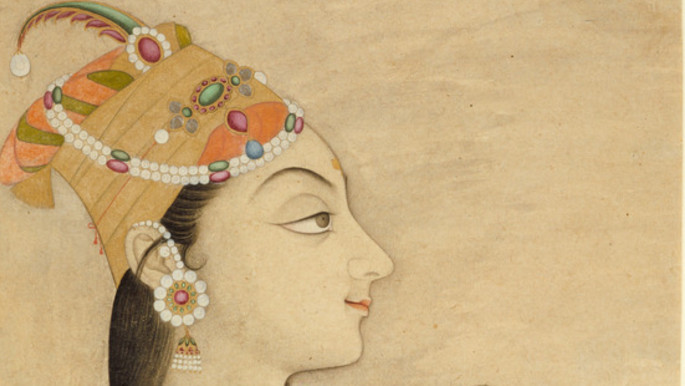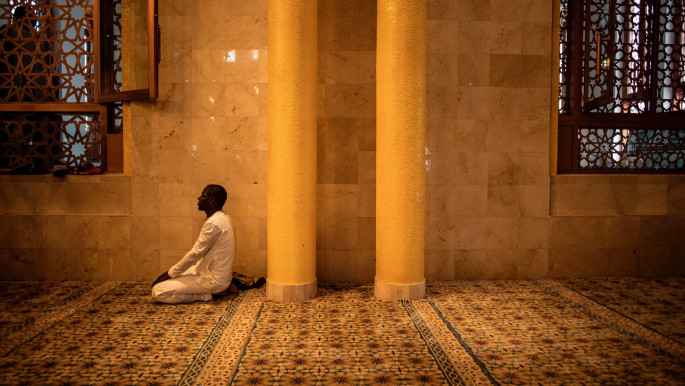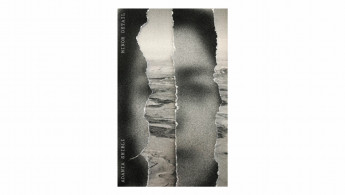Minor Detail: A haunting meditation on violence and memory in Palestine
Description and detachment are vividly portrayed in Palestinian author Adania Shibli's chilling novel, Minor Detail.
Navigating different eras connected by two dates and events, the reader is introduced to the historical and present-day reality of Israeli colonialism through observation and narration. A minor detail – a date – connects the historical setting to the contemporary.
The book opens in the Negev desert in 1949, with descriptions of an Israeli army platoon setting up camp and patrolling the area for "infiltrators", a reference to displaced Palestinians seeking to return to their lands.
Detailed descriptions of movement and action stand in contrast to the anonymity of the portrayed characters, who are identified only through their roles and actions, as opposed to names.
The officer in charge of the platoon takes centre stage in the first part of the novel. The reader is acquainted with his routine and logic juxtaposed against his inner thoughts, which are only revealed through the sequence of events which unfold after opening fire on a group of Palestinian Bedouins, after which the only survivor, a girl, is captured and taken to the camp.
The crime that unfolds is narrated in glimpses which portray the cohesion and ease at which the soldiers contemplate and participate in humiliation, rape and murder. A slight hesitation perforates the collective glee – the officer in charge momentarily exhibits signs of wanting to protect the girl.
 |
Description and detachment are vividly portrayed in Adania Shibli's chilling novel, Minor Detail |  |
Yet the scene swiftly escalates to reveal gruesome domination culminating in murder and an unmarked grave. The methodical violence and unrelentingly void of emotion make the novel all the more brutal.
Emptying the land of its inhabitants by all means – a central Zionist theme - is evoked in different ways within the novel. The officer in charge makes references to the barren land myth while dehumanising the indigenous Palestinians.
 |
|
| Read more from The New Arab's Book Club: A History of Islam in 21 Women by Hossein Kamaly |
The latter is reinforced by the crime, which is brought to attention 25 years later by a woman whose forays into memory while seeking out connections in a heavily restricted environment provide the reader with insight on what being Palestinian means.
This alludes to how to read the current violence within a historical context and what to make of the erased villages which are now archived memories.
As the novel shifts to the present, the narrator, who is also the protagonist, ruminates, "One cannot rule out the possibility of a connection between the two events, on the existence of a hidden link."
The protagonist, who is from Ramallah and also unidentified by name, was born on the same day the girl was executed in the Negev. The link between the dates inspires her to embark upon a journey searching for the truth of what happened 25 years earlier.
In perpetual reflection, the protagonist's vivid descriptions of her journey from Ramallah to the Negev acquaint the reader with the ramifications of colonialism on memory.
"Meanwhile, names of cities and settlements appear along the road, as do shapes of houses, fields, plants, streets, large signs and people's faces; all of this accompanies me on my journey while rejecting me too."
 |
In perpetual reflection, the protagonist's vivid descriptions of her journey from Ramallah to the Negev acquaint the reader with the ramifications of colonialism on memory |  |
The colonised landscape is reflective of the hidden testimonies, including the one the protagonist is in search of. Israel's normalisation of violence carries different levels of reactions – everyday violence becomes an intrusion, while unknown details of violence carry a historical burden.
The protagonist's journey is a mixture of both. Her routine is interspersed by unwelcome detours and restrictions, while the journey to uncover the truth about the killing, of which scant details are available to the public, is laden with responsibility and trepidation.
 |
|
| Read more from The New Arab's Book Club: An essential reading list on Black Muslim history |
At times, the protagonist ponders the absurdity of her travels to uncover the truth; a feeling which intensifies at the realisation of perpetual peril. "I realise that my interest in this incident on the basis of a minor detail such as the date on which it occurred is a sign I'll inevitably end up trespassing borders once again."
Borders are ambiguous in Israeli colonisation. It is this ambiguity which spells danger for Palestinians, alongside the predominant colonial narrative which changes facts to a travesty of truth. The cacophony of emotions subsides by the end of the novel, yet the tension is palpable.
The novel's gruesome twist on details and connections, as well as how these are interpreted, lead the reader to question narratives. From the Palestinian perspective, these are colonial impediments.
When it comes to uncovering historical memory, the colonial narrative takes precedence in storing details and imparting inaccuracies. It is only through a fictional narrative that we get an inside view of Zionist atrocities. The Palestinian protagonists, on the other hand, reap silence.
Ramona Wadi is an independent researcher, freelance journalist, book reviewer and blogger specialising in the struggle for memory in Chile and Palestine, colonial violence and the manipulation of international law.
Follow her on Twitter: @walzerscent
The New Arab Book Club: Click on our Special Contents tab to read more book reviews and interviews with authors:
 |
|


![President Pezeshkian has denounced Israel's attacks on Lebanon [Getty]](/sites/default/files/styles/image_684x385/public/2173482924.jpeg?h=a5f2f23a&itok=q3evVtko)



 Follow the Middle East's top stories in English at The New Arab on Google News
Follow the Middle East's top stories in English at The New Arab on Google News


